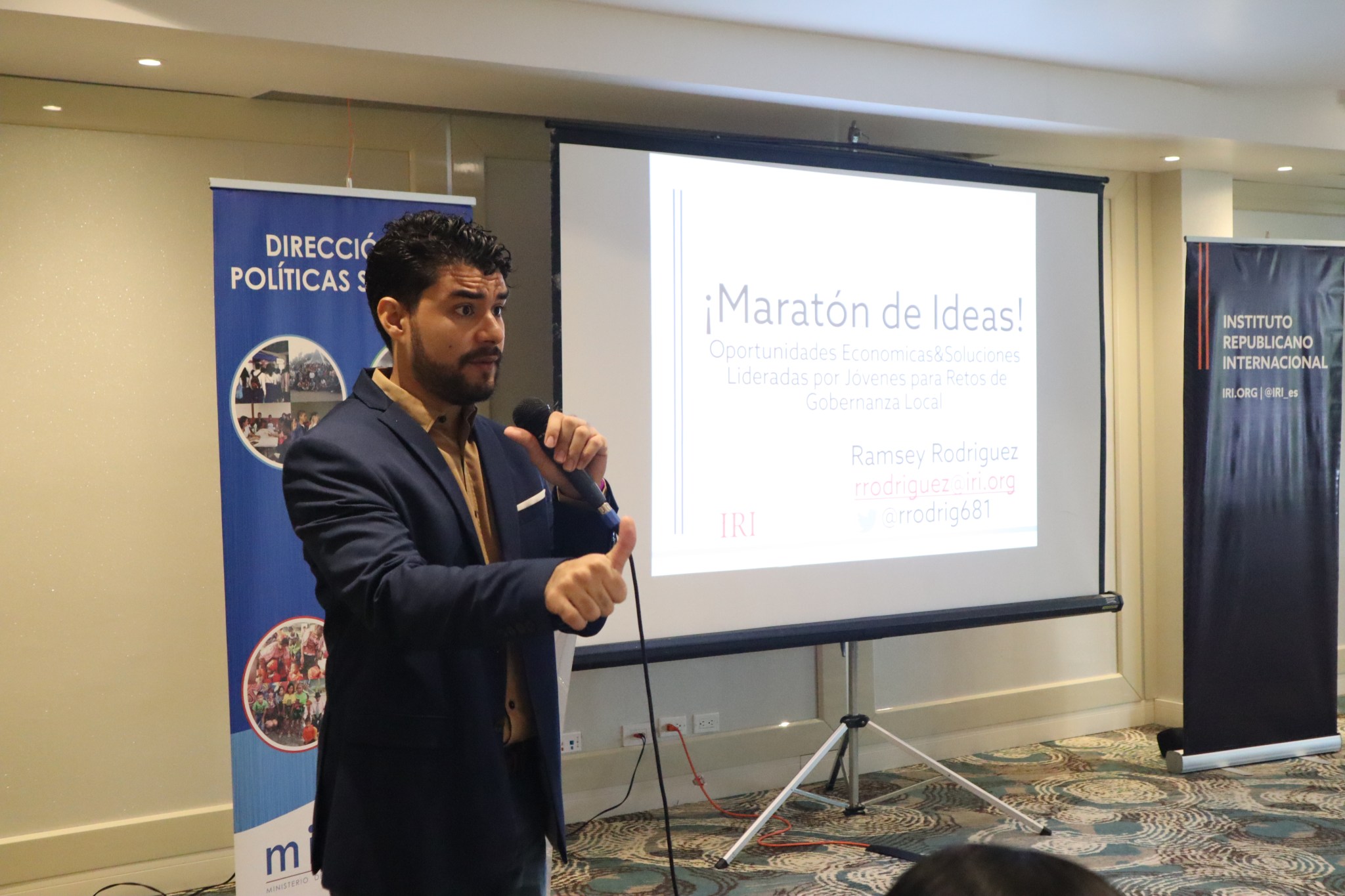
Last August, IRI’s Office of Monitoring, Evaluation and Learning (OMEL) brought together 27 program staff members from both Washington D.C. and 20 field offices for the first MEL Summer Institute to learn about the foundations and new trends of monitoring, evaluation and learning (MEL). The intensive four-day training allowed our colleagues to learn and practice every MEL element of program design and implementation.
Since then, many participants have applied what they learned from the MEL Institute in their day-to-day work. Some were also able to share this knowledge with others, including with IRI’s local implementing partners. Two recent examples of such knowledge-sharing took place in Indonesia and Panama.
On April 3, 2019, Program Officer Kerkan Wignyawinata replicated MEL Summer Institute training in Bandung City, Indonesia for 19 participants from 10 civil society organizations (CSOs) that are members of the IRI West Java Taskforce to Prevent Violence Extremism. In Panama, local facilitator Ramsey Rodriguez conducted a MEL training on April 8-9, with the Ministry of Social Development (MIDES), the governing body for youth policies in Panama, that IRI has partnered with to increase youth participation.
I asked Ramsey and Kerkan about their experience replicating MEL trainings, and to share tips and tricks for those considering conducting such trainings in the future:
How did you tailor the MEL Summer Institute trainings when conducting workshops for local partners?
Ramsey: We presented the Ministry with the agenda of the original MEL Institute, and jointly prioritized the main areas of interests to the Ministry’s officers, based on their current knowledge, and what they were expected to do after the training. We realized that MEL knowledge is particularly valuable for the officers implementing the National Youth Plan, which needed specific indicators to monitor the implementation progress of the Ministry’s objectives. We adapted and summarized the program into three main sessions: Basics of Project Design and MEL; Developing Effective MEL Plans; and Implementing MEL Plan in a Development Project.
Kerkan: Our partner on the ground, the West Java Taskforce to Prevent Violent Extremism expressed a strong interest in MEL training. The need for such training was also confirmed during IRI’s midline assessment of the project, which uncovered that CSOs did not have MEL plans and lacked basic MEL capacity. Since this was a one-day workshop, I chose topics which would be most valuable to CSOs, including on how to draft a problem statement, formulate theories of change, results chains and indicators, and an overview of evaluations and assessments. All attendees were enthusiastic to participate and said that they gained a lot from the workshop.
What would you advise to program staff who are considering replicating MEL trainings for partners in the future?
Kerkan: I think doing an interactive presentation of the training content is the key for success. This way, participants are more engaged, and it also helps us better understand which thematic areas they are most interested in, where their knowledge is lacking, and to focus more on those topics during the training.
Ramsey: My advice is to understand the needs of the audience and their level of experience. This is key for developing a useful training that addresses participants’ needs and priorities.
In addition, use a participatory approach. Lectures can be useful but having a chance to practice the concepts immediately helps solidify participants’ knowledge.
Finally, equip participants with practical tools that they can use in their future work. In the case of the Ministry, the final workshop on drafting indicators allowed the officers to develop draft indicators, which would actually be used to monitor the National Youth Plan’s implementation.
Why do you think that building MEL capacity of our partners is important?
Kerkan: Building MEL capacity of our partners is very important. The nature of IRI’s work is to provide institutional capacity building to its program partners, and MEL is definitely the key element for any organizational capacity building. Only by mastering MEL knowledge, can an organization implement quality programs.
Ramsey: We rely on and work together with partners. Our mission in the developing world is to “put ourselves out of work”: our goal is to ensure that the local partners have the capacity and can effectively respond to the needs of citizens in Panama. Transferring our knowledge and sharing best practices learned through IRI’s years of experience accelerates partners’ learning, helping them be more resilient and, over time, more self-reliant.
At the Office of Monitoring, Evaluation and Learning we also strongly believe that supporting local partners, as well as IRI’s program staff, to empower them to utilize MEL principles and tools is key to ensuring effective development programming.
Top